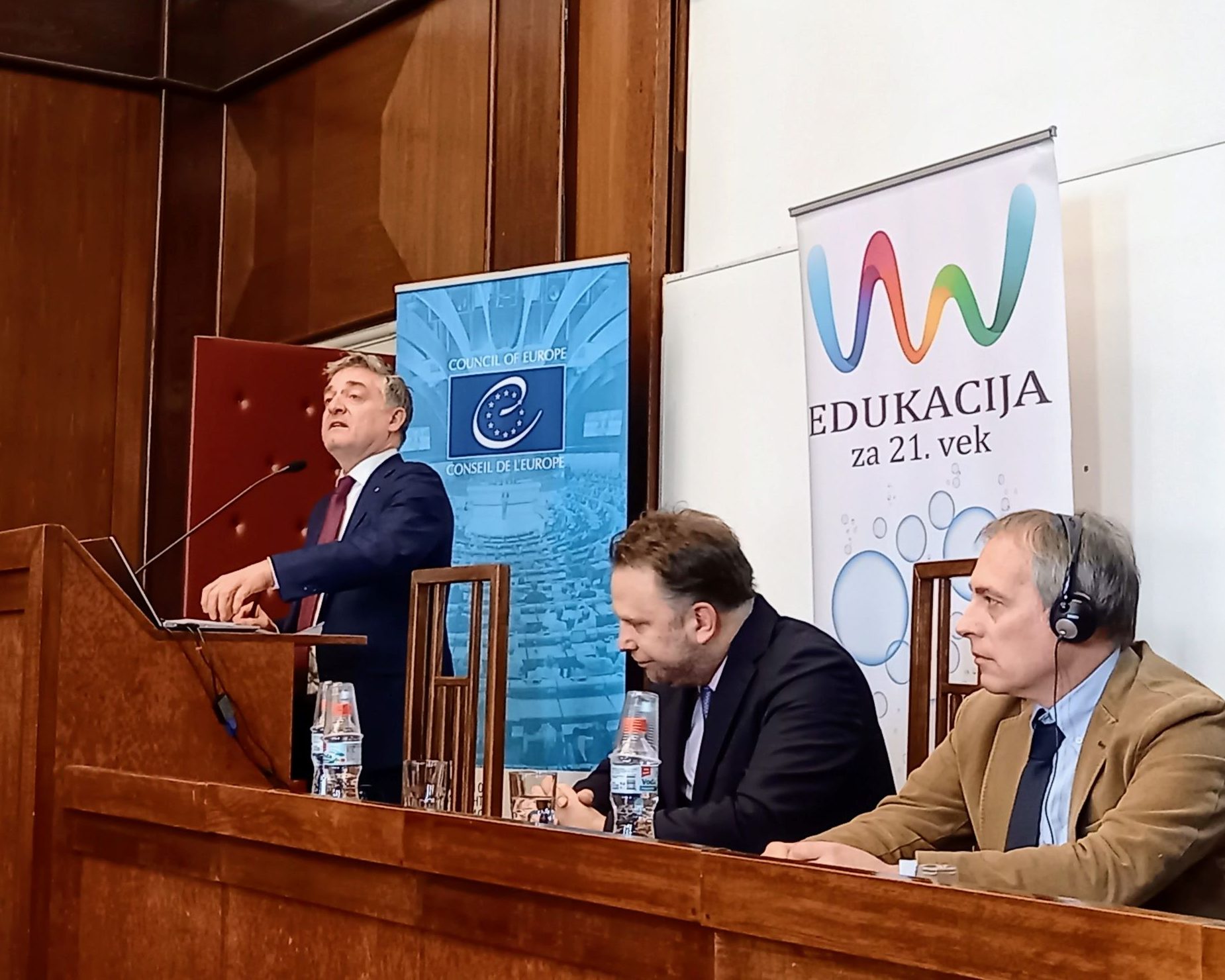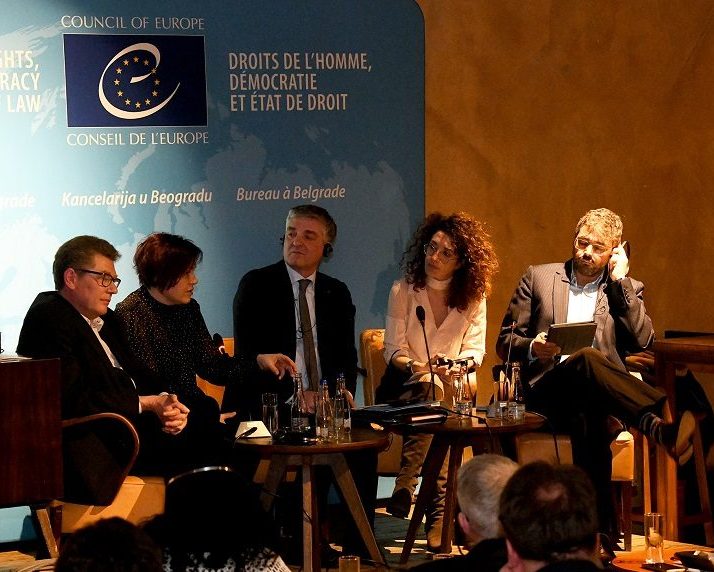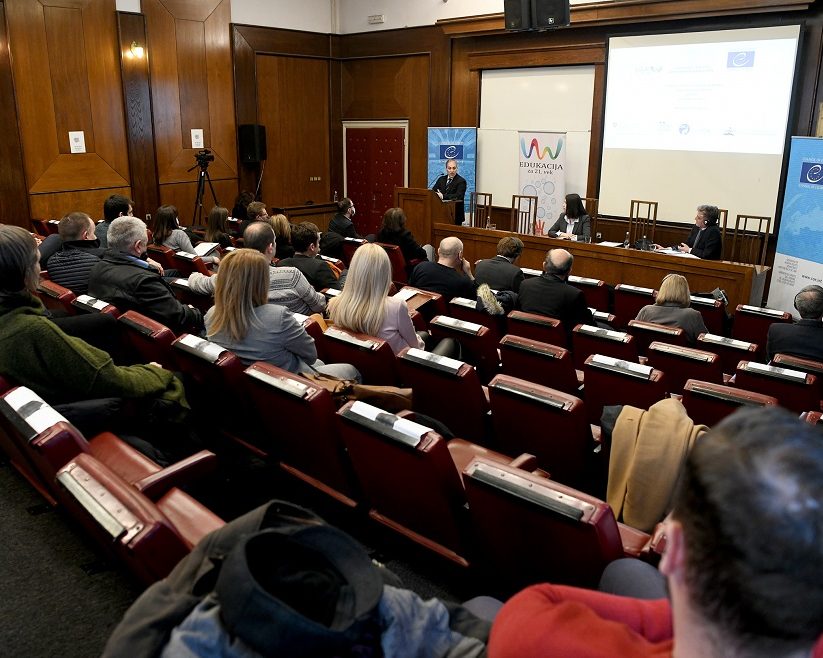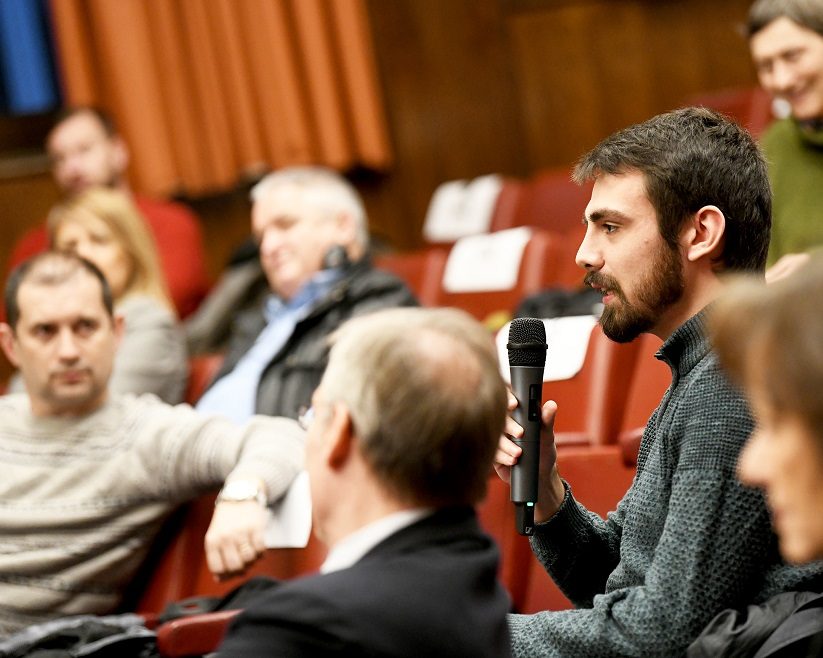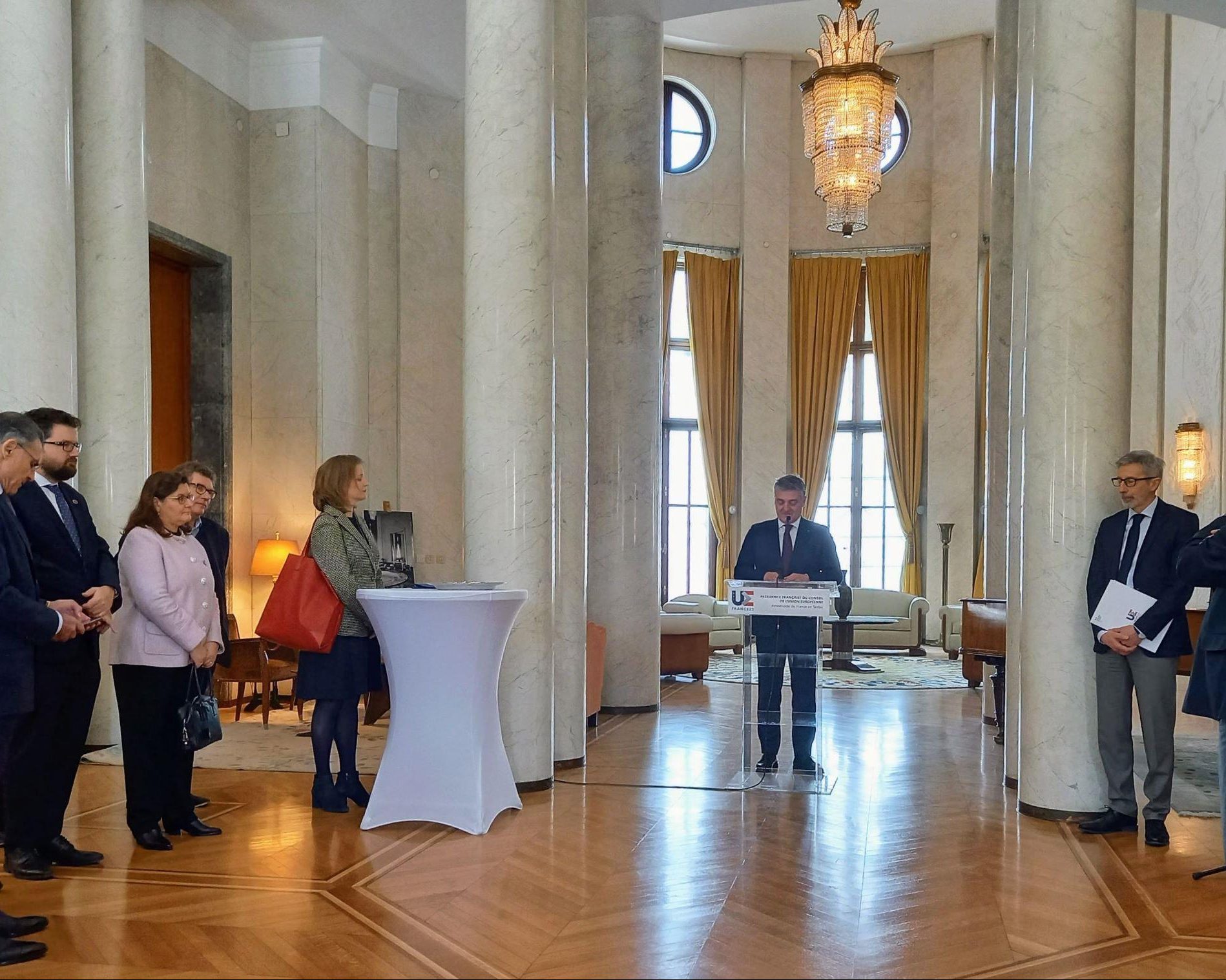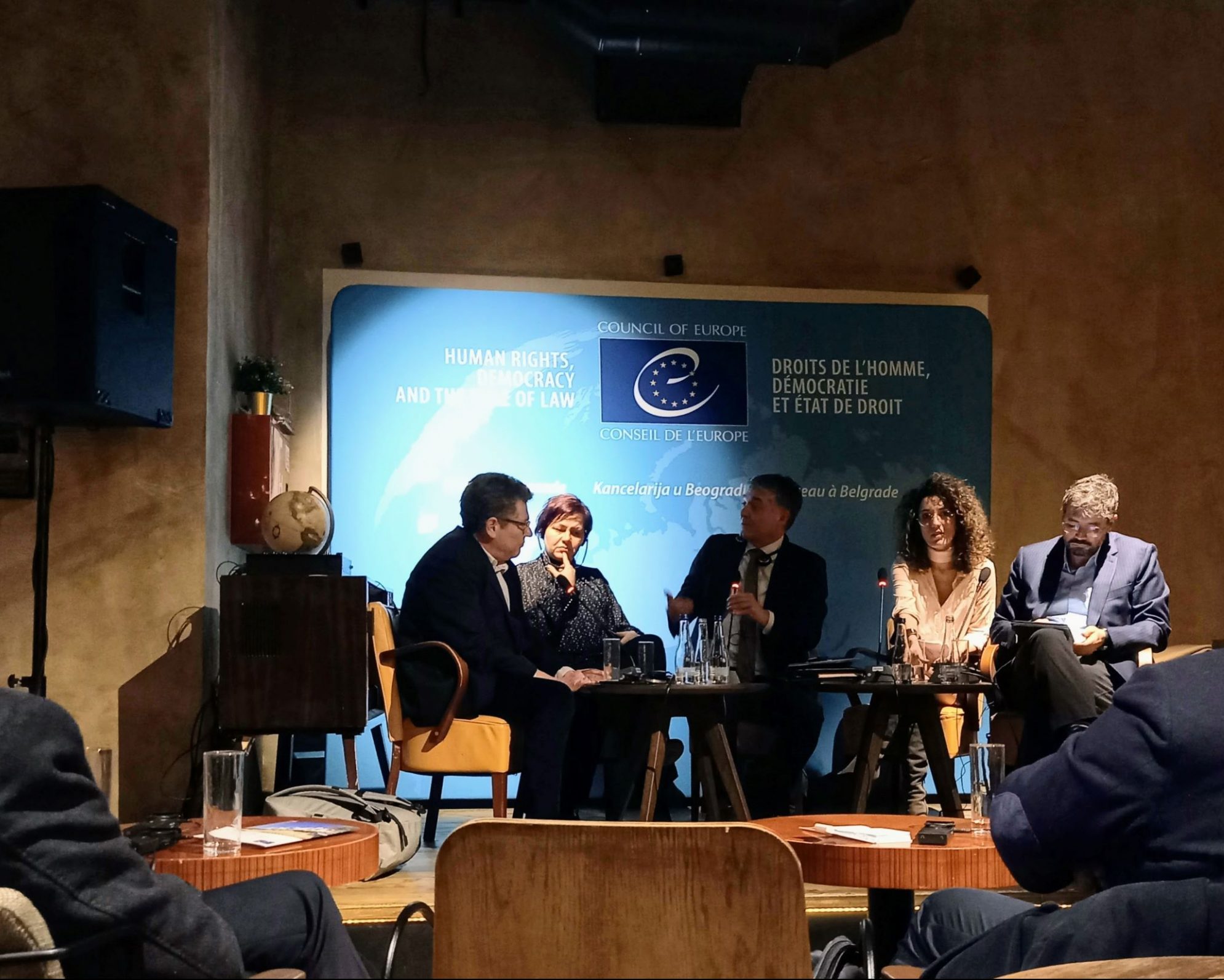International workshop
First Belgrade History Education "Challenges of history teaching in Europe" was held in Belgrade on 10 and 11 March 2022. The workshop was organised by the Council of Europe Office in Belgrade, Faculty of Philosophy of the University of Belgrade and Education for the 21st century, in the framework of the Month of Francophonie. The event was supported by the recently established Observatory on History Teaching in Europe (OHTE), an Enlarged Partial Agreement within the Council of Europe with a mission to promote quality education with the aim to enhance democratic culture. Serbia was one of the 17 founding states of the Observatory.
“History teaching and research can help us to eliminate misconceptions and traditional prejudices about each other. It is important to seek to establish facts to create conditions for real European unity, on the basis of human rights, democracy and the rule of law”, said Tobias Flessenkemper, Head of the Council of Europe Office in Belgrade. “In the midst of the ongoing aggression of Russia against Ukraine, it may be difficult for history teachers to decide how and based on which information to discuss it with their students. In this context, I would like to remind to you about the conclusions of the 1953 seminar for history teachers which have not lost their relevance even 70 years later: “It is especially necessary to avoid any interpretation of historical development which might be used in the particular interest of one state, or which might disturb the friendly relations between peoples", Flessenkemper said.
Vice Dean of the Faculty of Philosophy, Nataša Jovanović Ajzenhamer welcomed participants on behalf of the University of Belgrade:
“It is a great honour for us that the Faculty of Philosophy of the University of Belgrade is a co-organiser of this academic gathering, relevant both for the scientific-research and the wider social community. The newly established cooperation between the Faculty of Philosophy of the University of Belgrade and the Council of Europe Office in Belgrade represents another step forward in the democratisation of education in Serbia. Colleagues dealing with the topic of history education within the Center for Research of History Teaching and Historical Heritage at the Faculty of Philosophy in Belgrade keep a discussion on the didactic aspect of historical science and methodology of history teaching in schools alive and fruitful, always seeking to maintain the highest scientific and ethical standards of research. Also, their participation in today’s event and in new international projects of the Council of Europe, an organisation that has exceptional importance in the development of history teaching, is an illustration of this.”
Professor Marko Šuica from the Faculty of Philosophy in Belgrade and a member of OHTE’s Scientific Advisory Council, said:
“In modern dynamic societies of the 21st century, the purpose, role, and even the justification of the existence of history education have been questioned. Answers to the questions such as why is it important to learn history, what life skills and competencies history teaching develops in young generations, whether knowledge about the past can play a broader educational and social role, are just some of the topics history teaching in Europe wants to highlight”. He added that “particularly important challenge is the fact that formal history education is today confronted with the growing popularity of populist manipulations and abuses of history for political purposes”. “The basic idea of the Observatory on History Teaching is to try to create a clear picture of the state of history teaching in member states of the extended partial agreement, to improve the teaching of history and thus to encourage the development of democratic culture, better mutual understanding and more harmonious relations between European peoples”, he added.
Prof. Dr. Susanne Popp from the University of Augsburg, who is also the President of The International Society for History Didactics and Steven Stegers, executive director of Euroclio (European Association of History Educators), representing important institutional partners of the Observatory, spoke about challenges in history teaching today and presented reflections from Europe and Serbia.
In addition to the workshop for experts, a public event was held at the University of Belgrade in the framework of the Month of Francophonie in Serbia, which gathered experts, students, and members of the diplomatic community. The speakers at the event included Tobias Flessenkemper, Head of the Council of Europe Office in Belgrade, Anamarija Viček, State Secretary of the Ministry of Education, Science and Technological Development and Bureau member of the OHTE Governing Board, Jean-Arnault Dérens, journalist of “Le Courrier des Balkans”, Ana Radaković from the Education for the 21st century and Faculty of Philosophy in Belgrade, and Dominique Dirlewanger from the University of Lausanne.

